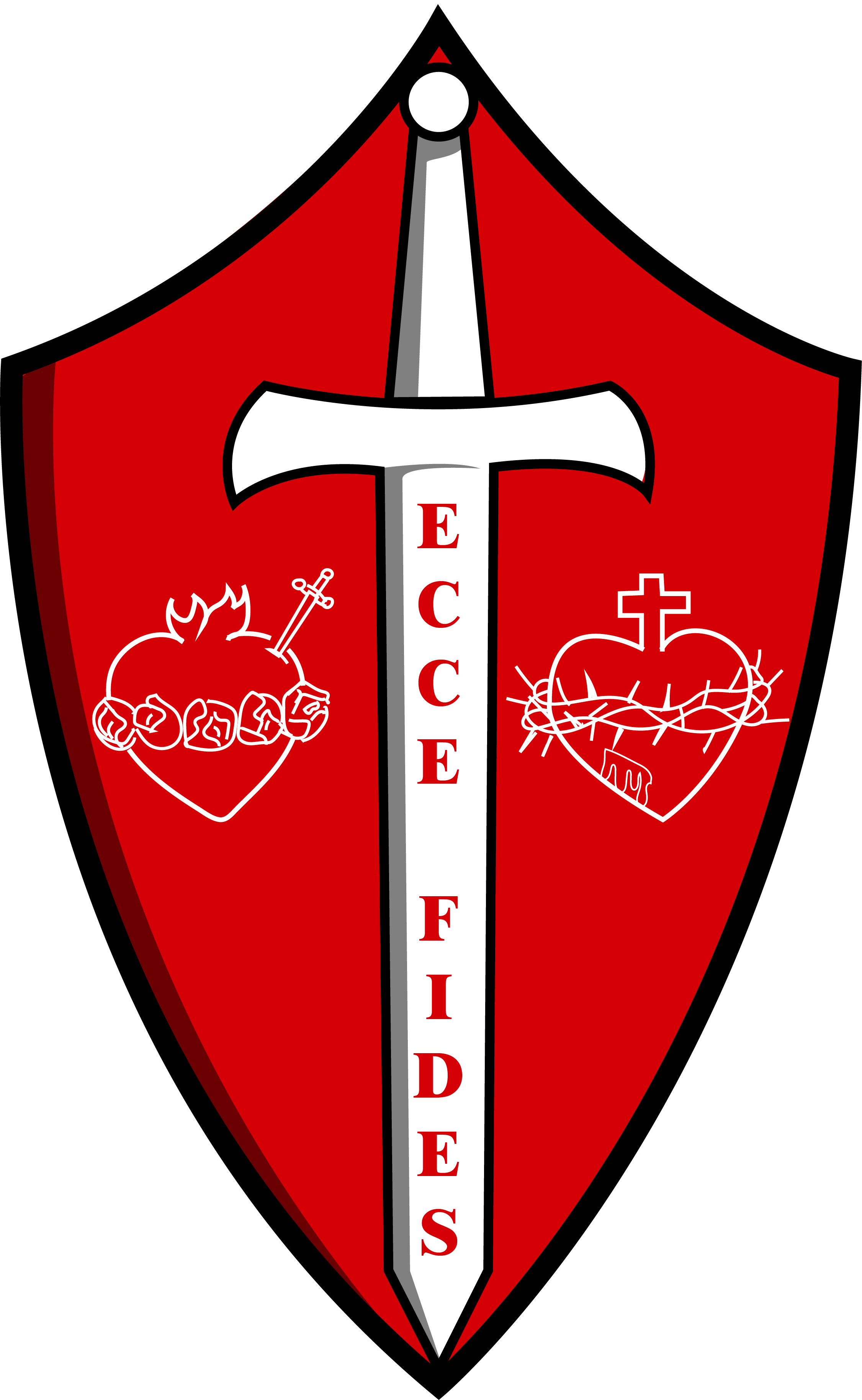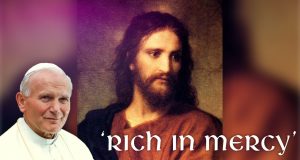For Catholics, the Bible is a love story. It begins with the nuptial love of Adam and Eve (The Book of Genesis) and ends with the supreme love story: the love of Christ the Lamb for His spouse the Church (The Book of Revelation.) The first great act of Divine Mercy is God’s act of Creation, bringing forth the world, its resources and creatures, especially men and women made in His very image and likeness. Through the first sin of Adam and Eve, and subsequently, the original beauty of creation was disfigured. But God did not destroy His creation. Instead, God calls Abraham to faith, establishing a covenant of love, and prospers his descendants. When threatened by bondage to Pharaoh, God raises Moses to lead and deliver his people, working great signs and wonders. Even in the face of these wonders, Israel defies God and turns to a golden calf. Again, God’s mercy is shown to a faithless people who wander in the desert for forty years in reparation for their sin.
Even when delivered to the Promised Land, Israel struggles against false gods. God punishes them with the Exile but raises up Prophets (like Isaiah and Jeremiah) to call His Chosen People back to Him. In spite of their infidelity, God remains faithful. In His Divine Mercy He promises a Messiah to deliver His people to a new and heavenly Jerusalem.
In the New Testament, Divine Mercy takes a human face: Jesus the Christ. God no longer speaks through angels or prophets, but directly in the person of His Son. Jesus walks among us, teaching, healing and working miracles to demonstrate the presence of God in the world. Yet His words fall on deaf ears, and many are blind to His works. As foretold by Isaiah, Jesus becomes the Suffering Servant, the Lamb of God who is slain and who by His wounds we are healed. In the Incarnation God the Son condescends to become man. By the Cross and Resurrection men and women become sons and daughters in a New Creation, begun but not yet finished. As St Paul writes so forcefully, all creation groans in expectation for the fulfillment of the promise of the Resurrection.
As we have been reading in the Acts of the Apostles during this Easter Season, the early Church struggled to bear witness to the meaning of Jesus’ birth, ministry, death and resurrection. As He promised (and expressed in the Gospel of St John) Jesus sends us the Holy Spirit, our Paraclete, who fills our hearts with the fire of God’s love, of His Divine Mercy. The Holy Spirit inspires the Apostles, especially Saints Peter, Paul, James, and John to translate this wonder of salvation into words and witness in order to build up the Church for all time. At Pentecost, the Apostles joined in prayer with Mary receive the gift of the Holy Spirit, who empowers them to build up the Church, preaching and baptizing the Nations.
As Catholics, we read the Bible within the living tradition of the Church. This is a help and privilege as the Bible is the story of a community of faith. Hence when we read on Easter Sunday morning “He has risen (Matthew 28:6)” we can trust these words to mean what they say. And we can trust in the Risen Lord, in the supreme act of Divine Mercy, to raise us up with Him if we are faithful to His words.

